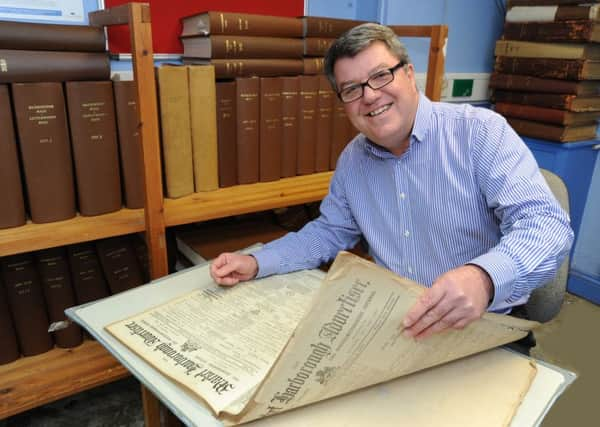John's WWI blog: Stealing a car to enlist


A teenager who stole a car and crashed it in London was not a ‘joyrider’ but merely desperate to enlist in the Army, according to the March 14, 1916, edition of the Market Harborough Advertiser.
The paper reported two weeks earlier that 16-year-old Albert Crampton had been bailed after being charged with theft and then dumping the £60 damaged vehicle.
Advertisement
Hide AdAdvertisement
Hide AdBut the twist in the tale was revealed in the court report about Crampton who was a mechanic at Pytchley Auto-Car.
Insp Grain told the court that Crampton had made a statement when he was arrested. He said: “I was sick of my apprenticeship and wanted to get away. My idea was that I wanted to get to London.
“I should have left the car at Pytchley Garage there, wired them where it was, and when I had got to work I should have sent the money on to pay for the hire.
“But I had an accident in London and I got frightened and went away and left it.”
Advertisement
Hide AdAdvertisement
Hide AdMr H Linley, defending, said his client had wanted to be a soldier as nearly all the men at the garage had joined up. “However, he had no criminal intent, no intention of converting the car to his own use beyond using it to go up to London to enlist.
“His mother, however, was rather averse to it and he was under age and he was afraid that as an apprentice his employers would not let him off.
Mr Linley added: “He took the car and his intention was to leave it at the company’s garage in Great Portland Street but he had an accident in London and ran into a lamp standard. The police came on the scene and he got frightened.”
Crampton had managed to enlist and was in fact accompanied in court by an escort from the King’s Royal Rifles. His mother had also agreed to allow him to stay in uniform and his employers urged the magistrates to be lenient.
Advertisement
Hide AdAdvertisement
Hide AdThe Chairman said: “It is sad to see an otherwise respectable young man placed in this position. The only good feature in the case is that the defendant has been anxious to serve his country.”
He was put on probation for 12 months and bound over for £20.
His case was in stark contrast to the many columns of reports about men appealing against their call-up papers under the Military Service Act .
The majority fighting conscription were again claiming to be in vital war industries but there was one conscientious objector from Melton Mowbray, the son of a local rector.
Advertisement
Hide AdAdvertisement
Hide AdHe was interrogated by the Tribunal chairman, who posed a particularly loaded question: “Supposing your parents and friends were being attacked and women mutilated, do you mean to say you would not raise your hands in resistance at all?”
The rector’s son replied: “I should try to stop them without hurting them but not kill them. And if I had guns pointing at me I would sooner be shot.”
But the Chairman turned down the request when he could not quote verbatim the particular teaching of the New Testament on which he based his decision.